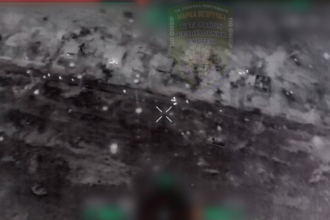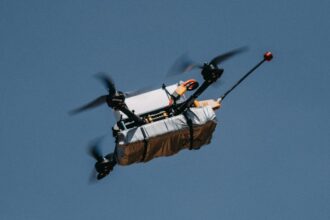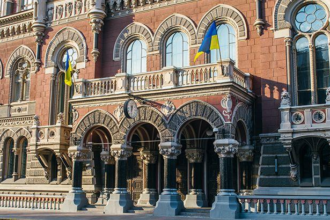Video evidence shows that despite North Korea’s reputation as having skilled special forces, young conscripts arrive at Russian bases. This raises doubts about their ability to conduct complex offensive operations in unfamiliar territory, and with a language barrier, since they share a translator for every forty soldiers along the Kursk Front.
Today’s most important updates are from the Kursk direction in Russia.
In a dramatic escalation of the Russian Counteroffensive at Kursk, Russian forces introduced tens of thousands of North Korean troops. The deployment of new troops presented unexpected obstacles ranging from a lack of experience to limited communication with Russian units. This created critical vulnerabilities in the Russian offensive.
South Korean intelligence has recently informed Ukrainian command and Western Allies that a first wave of approximately 12,000 North Korean troops have already been deployed to Kursk, and could engage in battle at any time.
This marks an important turning point in the conflict. This is the first time that a third country has deployed regular forces in large numbers. Recent videos and intercepted communications suggest that North Korean forces, who initially arrived in Vladivostok via civilian vehicles, were transported along the E38 Kursk – Voronezh highway, and are now positioned close to the Kursk front.
The deployment of North Korean forces in Kursk has a double purpose. The first is to prevent Russian forces from being reassigned from critical areas on the front lines of Ukraine. It is important to remember that at least 30,000 Russian troops have already been redirected to Kursk from various points along the front.
The second objective of the North Korean contingent was to support Russian efforts to meet a new deadline that Putin set to retake Kursk by February.
North Korea has one of the largest and most highly-skilled special forces units in the world. North Korean special operations forces have been trained to conduct infiltration operations on rugged terrain and in high elevations.
The Korean Peninsula, and especially the area around Demilitarized Zone has challenging mountainous terrains. This provides North Korean forces with extensive knowledge of how to navigate and conduct operations in difficult terrain.
Analysts are currently actively debating how these North Korean forces will be deployed, focusing primarily on two scenarios. Some analysts believe the troops will focus on an offensive in northern sector of the Kursk Salient, aiming to have a focused and operation impact.
The most difficult terrain is found in the northern section of the Ukrainian Salient. This rugged terrain offers the North Koreans several strategic options. They could reinforce the ongoing Russian operations out of Korenevo in order to encircle the Ukrainian troops further north or launch an additional offensive east of Malaya Loknya.
Recent Wall Street Journal articles provide insight into the situation. They feature military analysts’ assessments of video footage released by Ukrainian intelligence. The footage appears as if it shows young North Korean soldiers – likely conscripts – preparing themselves at a Russian base. Analysts note these troops lack the presence, skills and experience typical of special forces. They may also have little training and no combat experiences.
Analysts predict that given these indicators, their deployment will likely focus on limited tactical goals, and be used to increase pressure across multiple fronts.
Integration and communication problems between North Koreans and Russians are a major concern. There is a shortage in translators. Only one translator is available for every 30-40 soldiers, according to reports. These communication and command problems could create critical vulnerabilities in the chain of command. This would allow Ukrainian forces to launch counterattacks or reclaim positions.
The anticipated engagement of North Korean forces introduces a whole new dimension to the war and increases the risk of an escalation. North Korean forces will likely enter combat in early December, which could prompt a strong reaction from Ukraine’s allies. Ukrainian forces may try to take advantage of the situation in the meantime by targeting weak links within the chain of command and encouraging North Korean soldiers to defect. They could also show that Russian forces made a strategic mistake by involving North Korean forces.
In our regular frontline reports, we team up with the military blog Reporting from Ukraine in order to keep you updated on what’s happening on the battlefield during the Russo Ukrainian war.
The Russian attempt to encircle Ukrainian forces in Kursk Oblast was foiled when Ukrainians deployed Bradley vehicles and Abrams tank supplied by the West, which helped advance.
Read More @ euromaidanpress.com




